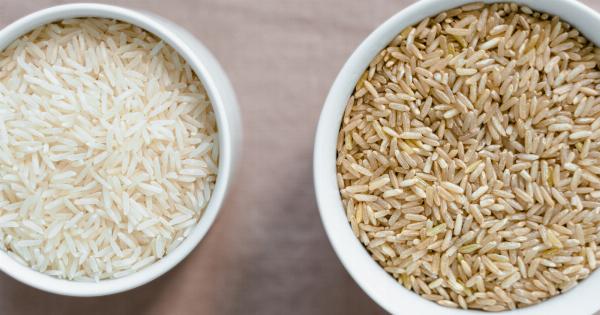Constipation can be an uncomfortable and distressing condition that affects people of all ages. It occurs when bowel movements become infrequent or difficult to pass.
While there are over-the-counter medications available to relieve constipation, there are also several natural remedies that you can try at home. These methods are often effective, gentle, and have minimal side effects. In this article, we will discuss ten natural ways to treat constipation at home.
1. Increase Fiber Intake
Fiber is essential for maintaining regular bowel movements. It adds bulk to your stool, making it easier to pass. Include plenty of high-fiber foods in your diet such as fruits, vegetables, whole grains, and legumes.
Aim to consume at least 25-30 grams of fiber daily for optimal digestive health.
2. Stay Hydrated
Dehydration can contribute to constipation as it leads to dry and hard stools. Make sure to drink enough water throughout the day.
In addition to water, you can also consume other fluids like herbal teas, fresh fruit juices, and vegetable juices to keep your body well-hydrated.
3. Exercise Regularly
Regular physical activity promotes better bowel movements by stimulating the natural contractions of the intestines. Engage in activities such as brisk walking, jogging, yoga, or cycling for at least 30 minutes each day to help prevent constipation.
4. Try Natural Laxatives
There are several natural laxatives that can help relieve constipation. These include psyllium husk, flaxseed, aloe vera, and herbal teas like senna and dandelion root. These substances help soften the stool and promote bowel movements.
However, it is important to use them in moderation and not rely on them as a long-term solution.
5. Improve Your Toilet Habits
Some toilet habits can worsen constipation. Take your time when using the bathroom and don’t rush. Sit on the toilet for a few extra minutes, as this can help encourage bowel movements.
Additionally, ensure that you are in a relaxed and comfortable position while using the bathroom.
6. Manage Stress
Stress can affect your digestive system and lead to constipation. Find healthy ways to manage stress, such as practicing relaxation techniques, meditating, or engaging in hobbies that you enjoy.
Taking time for self-care can greatly improve your overall digestive health.
7. Consume Probiotics
Probiotics are beneficial bacteria that promote healthy gut function. They can help soften stools and regulate bowel movements. Incorporate probiotic-rich foods into your diet, such as yogurt, kefir, sauerkraut, and kimchi.
Alternatively, you can take a probiotic supplement after consulting with your healthcare provider.
8. Massage Your Abdomen
Massaging your abdomen can help stimulate bowel movements and relieve constipation. Use gentle circular motions with your fingertips and massage in a clockwise direction.
This helps to promote movement in the intestines and can provide relief from constipation.
9. Increase Magnesium Intake
Magnesium plays a crucial role in regulating muscle contractions, including those in the digestive tract. A deficiency in magnesium can contribute to constipation.
Increase your intake of magnesium-rich foods such as leafy green vegetables, nuts, seeds, and whole grains.
10. Don’t Ignore the Urge to Go
When you feel the urge to have a bowel movement, it is important not to ignore it. Holding in stool can cause it to become harder, making it more difficult to pass. Responding to the urge in a timely manner can help prevent constipation from worsening.





























